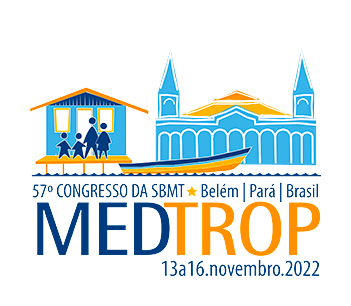Dados do Trabalho
Título
Leishmania amazonensis from distinct clinical forms/hosts has polymorphisms in Lipophosphoglycans and displays variations in immunomodulatory properties in murine macrophages
Introdução
Leishmania infections result in a spectrum of clinical manifestations determined by complex host-parasite interactions. Leishmania amazonensis has been identified from patients with diverse clinical forms of leishmaniasis, including localized cutaneous leishmaniasis (LCL), anergic diffuse (ADCL), muco-cutaneous (MCL) and canine visceral leishmaniasis (CVL) in South American countries, mainly in Brazil. As a part of a wider project on the glycobiology of Leishmania parasites, we evaluated the role of L. amazonensis LPGs from distinct clinical forms and hosts during the interaction with murine macrophages. The present study adds information to the complex context that involves the mediation of the immune response by glycoconjugates, such as LPG.
Objetivo(s)
Here, we evaluated functional/biochemical LPG properties from six L. amazonensis strains from different hosts/ clinical forms.
Material e Métodos
Six trains of L. amazonensis from different clinical forms and hosts were evaluated and are listed in Table 1. Promastigotes were cultured in M199 medium supplemented with 10% fetal bovine serum (FBS). Lipophosphoglycans were extracted with organic solvents and purified using phenyl-Sepharose from late log-phase cells. Organic eluates were dried through N2 evaporation and purified LPGs were resuspended in endotoxins-free water and quantitated using phenol-sulfuric method. LPG concentrations were adjusted to 10 ug/mL in RPMI prior to the functional experiments in murine macrophages. To evaluate the production of different mediators in response to LPG, macrophage culture supernatants were collected after 48 h of incubation. NO, TNF-α, IL-6, IL-10, IL-12p70 and MCP-1 were determined using BD Cytometric Bead Array (CBA) Mouse Inflammation Kit.
Resultados e Conclusão
Leishmania amazonensis strains isolated from different clinical forms and hosts displayed functional and biochemical polymorphisms in their LPGs. Qualitative differences with respect to side chains substitutions enabled the description of three types of LPG (I-III). Although three strains bearing side chains in their LPGs (GV02, BA276 and LV78) had higher pro-inflammatory profile, a clear correlation was not fully established in murine macrophages.
Palavras-chave
Leishmania amazonensis; glycoconjugates; lipophosphoglycan; macrophage; innate immunity
Área
Eixo 06 | Protozooses
Categoria
NÃO desejo concorrer ao Prêmio Jovem Pesquisador
Autores
RODRIGO PEDRO SOARES, FELIPE DUTRA REGO, Márcia Dalastra Laurenti
